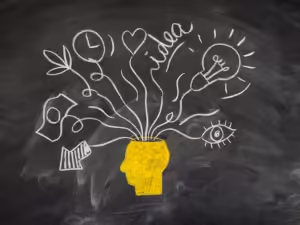Professional success in the highly competitive job market of today depends on having soft skills. Young employees typically ignore them, even though they might be just as important for launching a successful career as technical skills. However, precisely what are soft skills?
“Soft skills are more a part of who we are than of our knowledge.”
Employers nearly always look for a blend of hard and soft talents in their job descriptions. Hard skills are aptitudes acquired by education and practice, such as proficiency in a second language, computer literacy, and marketing. Conversely, soft skills are a collection of character attributes, behavioral traits, social behaviors, and interpersonal skills that shape your interactions with other people. “Soft skills are more a part of who we are than what we know,” says Marcel M. Robles, Eastern Kentucky University’s chair of faculty and assistant dean. However, why are soft skills so crucial?
But recently employers are starting to place an increasing amount of value on soft skills, commonly referred to as people skills or interpersonal abilities. This is so because soft skills are the cornerstone that supports all other skills. Soft skills are, in a sense, those crucial attributes that enable you to collaborate, communicate, and engage with people in an efficient manner. Hard and soft skills complement each other to provide professionals with the capabilities they need to perform their jobs with determination and accuracy.
Goke Olagbemi, an MBA alumnus of Hult International Business School, says that in order to be successful with data analytics, one must be able to recognize the intersection of technical hard skills and business soft skills. Using this combination successfully is essential for both problem-solving and successful corporate operations. A few instances of soft You must now be wondering which soft talents to put first. Which soft talents are most valued by employers nowadays?
Important soft skills that should be cultivated
Several recent research and articles state that the following are the most crucial soft talents that employers value:
- interpersonal and communication abilities
- cooperation and teamwork flexibility adaptability
- Critical thinking, problem-solving, and emotional intelligence
- Leadership creativity in conflict resolution includes traits like emotional intelligence, critical thinking, flexibility, leadership, and interpersonal skills, among others.
It is evident that soft skills such as teamwork, communication, and flexibility are more important than hard talents.
Regardless of their area of expertise, employees need to have good communication skills. To achieve successful collaboration and prevent misconceptions, it is essential to have the capacity to articulate ideas effectively and modify them based on the audience.
At the workplace, staff members need to be able to collaborate and operate as a team. Employers recognize that cooperative workers not only foster a great work atmosphere but also increase output and innovation inside their firm or organization.
Employers look for adaptability above everything else in today’s fast-paced, constantly-changing workplace. Workers that are able to swiftly adapt to changing circumstances and accept change are in great demand
We could discuss the value of each specific soft skill for hours on end, but it’s crucial to keep in mind that we are not able to excel in every endeavor and acquire every skill. Certain individuals possess superior communication and leadership skills, while others excel in emotional intelligence, and so forth. However, this should not deter you from using and honing these skills—or at least some of them—especially if you’re a student about to graduate. It is never too late, even if you have already received your degree. During your master’s program, you can attempt to strengthen your soft skills.
Overlooked but important soft skills
There are a ton of soft skills that you might already have that will contribute to your mental well-being. Although they are not as commonly reported to us, the following additional soft talents are nonetheless in high demand:
- listening abilities
- business savvy
- controlling the use of time
- ongoing education and development
- tenacity and endurance
- coaching perspective
Conclusion
To sum up, soft skills are vital for fostering a happy work atmosphere. This is particularly true in situations that need teamwork, where collaboration is important to success. Strong soft skill holders are frequently more adept at settling disputes and understanding the needs of their colleagues. This can lead to higher morale and increased productivity in the workplace.



